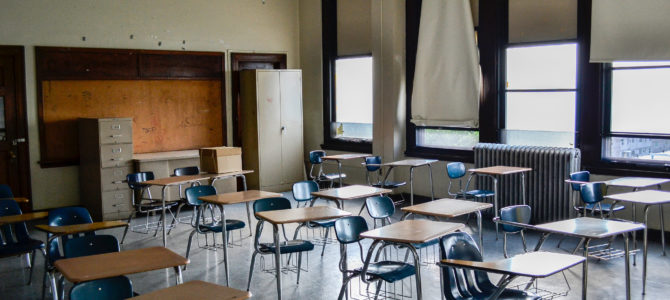
Teachers’ unions took it on the nose during the lockdowns. After they pushed to keep schools closed for months (and then folks like national teachers’ union president Randi Weingarten inexplicably blamed it on the “privilege” of Jewish Americans), unions are justly taking blame for school closures. Angry parents have taken to school board meetings and national news to openly criticize their school boards’ servility to the unions.
But even after this public beating, unions still wield brazen political power in state and local politics. How much have their dropping approval ratings dragged their power down too? That’s now being tested here in Pennsylvania.
Lawmaker’s School Choice Efforts
Lawmakers have made it a priority to expand tax-credit programs that fund scholarships for private school tuition. Doing so will allow more donations to the programs, alleviating long scholarship waitlists and providing families options they increasingly demand.
Between now and June 30, legislative leaders have the opportunity to expand the Educational Improvement Tax Credit (EITC) and the Opportunity Scholarship Tax Credit (OSTC) programs, both of which prioritize students in low-performing district schools, in the impending state budget. They begin the negotiations armed with the priorities set in Pennsylvania Senate Bill 1, also known as the “Excellence in Education for All Act.”
Republican Jake Corman, Pennsylvania’s senate president pro tempore, is keen on the idea of lifting existing caps on the state’s tax-credit scholarships. “The General Assembly should be focused on empowering parents to make the best decisions for their children’s education,” he said in an interview.
“If you’re stuck in a public school that did not do a particularly good job of adapting to the pandemic, and you don’t have financial resources to move on, [right now] you just have to deal with that educational loss,” Corman added. “We have an opportunity now to expand on existing opportunities like the tax credits [scholarships], which have been successful.” But to prevail, he will need the support of fellow lawmakers who are not cowed by the power of the teachers’ unions.
Resistance from Union Heads
The effort has run into stiff opposition from the Pennsylvania State Education Association union, a massive lobbying organization funded by mandatory dues from 180,000 public employees. It is attempting to drown the voices of frustrated parents.
In reaction to the state’s emphasis on parental choice, the PSEA claimed the proposal “would divert huge amounts of taxpayer dollars from the state’s public schools.” The tax credit scholarships receive funding from private individual donations, however, not from the state education budget.
Neither are public schools are in the poor house, as some have suggested. “It’s just not accurate to say the public schools are suddenly underfunded,” Corman observed. “In fact, the public schools are getting a record amount of money this year from the federal government to deal with the issues from COVID-19.”
Funding Isn’t the Problem
An analysis of the distribution of federal COVID-19 relief by the Commonwealth Foundation, a free-market think tank in Harrisburg, Pennsylvania, substantiates Corman’s position. It shows public schooling in Pennsylvania was allotted more funding than the state’s Department of Health, which would presumably include Medicaid, assisted living, nursing homes, vaccine distribution, and other medical expenses during the lockdowns combined.
“How this massive influx of new federal taxpayer dollars was distributed shows the clout of special interests in the halls of government, from Washington to Harrisburg,” Nathan Benefield, vice president for the Commonwealth Foundation, said in a press release. “Even during a global health crisis, more money was funneled into public schools — many of which remained closed — than to health care needs.”
That “clout of special interests” is just as visible in the fight over education reform. In the 2020 election cycle, the PSEA donated at least $147,500 to the House Democratic Campaign Committee and $186,000 to the Senate Democratic Campaign Committee. Since 2010, the union has also donated about $2.4 million to Democrat Gov. Tom Wolf.
Unions v. Families: Who Wins?
If elected officials and parents who support school choice can prevail, despite teachers’ unions’ political extravagance, then what happens in Pennsylvania may not stay in Pennsylvania. The expansion of tax-credit scholarships here could send a signal across the country that unions don’t have the final say in children’s education.
Jamie Walker, a Bucks County mother of three and a former teacher, is involved with several grassroots parents’ organizations pushing back against well-endowed special interest groups.
“There was a lot brought out about public schools last year during COVID-19,” Walker said. “To begin with, we found we can no longer depend on public schools to educate our kids. We are paying a lot of taxes to public schools, but they are not delivering.”
Walker would like to see lawmakers remove the caps on the tax-credit programs as a start. But over time, she would also like to see a more proactive approach to school choice that benefits a broader cross-section of Pennsylvania families. “There are a ton of families that would benefit,” she said.
A recent study from the Commonwealth Foundation makes a compelling case for those benefits. The study found scholarships for private tuition funded through tax credits boost academic performance, lifetime earnings, and Pennsylvania’s overall economic output by billions of dollars.
Elected officials in this very purple state are now in a position to show which they value: the growing demand by families for education choice, or teachers’ unions’ persistent political clout.









